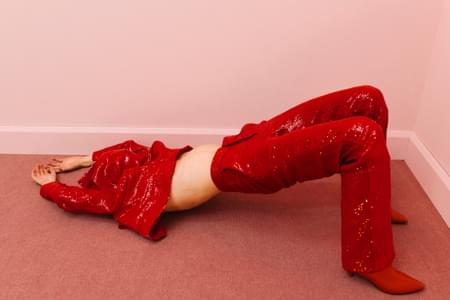This website will offer limited functionality in this browser. We only support the recent versions of major browsers like Chrome, Firefox, Safari, and Edge.

Have you ever had sex and then subsequently notice your boobs are sore?
Perhaps it’s a day later- maybe even an hour later!- but at some point the discomfort in your breasts stop you in your tracks enough to think, “Why do my boobs hurt?”
The answer- as it most times is with sex is- it depends!
There are typically a few things sore breasts can be whittled down to and learning to distinguish between “normal” and “abnormal” pain may help you determine if and when to escalate to a healthcare professional.
Chemical causes like hormones at different ages and stages, or physical causes like rough sex are just some of the reasons your breasts could be feeling sore after sex.
Hormones May Be The Culprit
Ovulation
If you’re a person who ovulates, sore breasts are often an indicator of where you are in your cycle (the second half, to be more precise).
This is because shortly after ovulation, your estrogen levels drop and your progesterone levels rise.
For some people, this cyclical shift causes soreness of the breasts.
If you are peri-menopausal this can also cause sore breasts because your body is trying to adapt to the new normal, and might mimic symptoms of PMS.
Pregnancy
Pregnancy is also another time when your body’s hormones are working overtime, so you may experience tenderness particularly in the first trimester as hormone levels rise.
Hormonal imbalances
Your breasts might also be sore if you are someone who is experiencing hormonal imbalances.
Whether this is caused by something like birth control, PCOS or endometriosis, or are using hormonal therapy, your body is likely reacting and adjusting to this attempt to rebalance. In times like these, breasts can be sensitive to these fluctuations, causing irregular instances of discomfort.
In short: any point of “hormonal transition” can be the culprit of tender breasts. So how can you tell if it’s hormonal? Most times this type of discomfort is bilateral, meaning you feel the soreness in both breasts.
It might also be hormonal if you are noticing similar patterns over time. For example if you’re a person who menstruates, you might regularly feel soreness during particular weeks in your cycle each month.
One thing to remember is- while it’s great to talk to others about their pain thresholds: their normal might not be your normal.
Physical Irritants
Friction during sex
Getting in touch with yourself (pun intended) will be the best indicator of whether or not to reach out for professional advice.
If you’re finding that your breasts are particularly sore after sex, it could be the way they were handled- literally!
Friction is the enemy, so if your partner was particularly enthusiastic about breast-play, it may have caused some acute soreness.
Things like sucking, tugging, or pulling on the breasts too much might cause soreness, and even bruising. And hey- that might be your thing!
Just remember to communicate, take breaks if you need to, and add lube or massage oil to give yourself some comfort. Massages are great for your breasts’ overall health, but too much pressure might be attributing to the tenderness you feel after sex- especially nipples which have a particular arrangement of nerve-endings.
Nipples that have recently been bitten, pierced, or currently breast-feeding will likely feel particularly tender, so be sure to treat them with some tender-loving-care, indeed!
If certain sexual encounters leave you in pain (and not necessarily the asked-for kind), practice ways for asking for what you need: “I love when you play with my boobs/breasts/ladies/[insert your favorite phrase here]: I would feel so good if you touched me like this/it would feel amazing if we could use this massage oil…” etc.
Physical friction from bras
Another tricky friction culprit of breast soreness can be bras!
While you might feel comfortable with the classic under-wire bras, if not fitted correctly they can adversely affect breast tissue: If your bras are causing discomfort, it might be worth looking into wireless bras, ensuring a proper bra fitting with a specialist, or letting the ladies loose when you’re in the comfort of your own home.
Even switching up the types of bras you wear on a weekly basis will likely help in your overall comfort if you find that your bras are causing you pain.
It’s important to listen to your body if your bras are causing discomfort because (A) it’s a relatively easy adjustment to change for the better and (B) if not addressed, it could contribute to other adverse effects over time, like back and neck pain or poor posture.
Lumps & bumps
Learning to check yourself for any lumps and bumps- especially if they’re (A) painful and (B) localized (pain in only one breast, pain in a specific spot, respectively) is something that should be taken seriously.
Self-checks can be done while you’re in the shower: giving yourself a once-over while you’re sudsing up can be a great preventative step, if you’re not ready to bare-all in front of a mirror.
According to the American Cancer Society, on average, 1 out of 8 women in the United States will develop breast cancer over their lifetime.
If you do have a lump that is concerning, it’s important that you talk with your healthcare provider about your concerns and to make an action plan together as soon as you notice something.
They’ll likely ask you questions like, “When did you first notice the mass? How would you describe the pain? Is it more painful under certain circumstances? Has the mass changed over time? Where specifically does it hurt?”
From there, you may be asked to come in for some tests like an exam, an ultrasound or a mammogram and your doctor can give you any other resources, regardless of your diagnosis.
If you are recovering from breast cancer specifically, Rosy has published a Suvivor’s Guide that has educational resources, surgery recovery products, dilators, community and more to support you along your journey.
When To See A Doctor
The chest checklist
Here are questions you can ask yourself to see whether this is your baseline of normal soreness, or if this is something that needs to be explored further with your doctor:
Is the intensity of this discomfort affecting my quality of life?
Is the pain unilateral? (one sided)
Have I been experiencing soreness or pain consistently for an extended period of time?
If you answered, ‘No’ to most or all of these questions, more than likely you’re good to go. Some additional questions you could ask yourself if you’re still unsure…
Did I recently undergo an experience where this type of pain is expected? (rough sex, surgery, injury, etc.)
Am I currently going through a hormonal transition? (pregnancy, menopause, hormonal therapy, etc.)
If the answer is YES to these two discovery questions, then it’s most likely that tender breasts are your body trying to readjust to homeostasis.
The biggest red flag is pain in a localized area in one breast. You may feel awkward talking to your doctor about these needs, however, you should always feel empowered to talk to your doctor about any reservations you may have about your health.
It’s ultimately their job to ensure you’re leading a healthy and comfortable life.
“Breast” advice?
Learn your body. Understanding what your baseline is- both from a chemical and a physical perspective- will help you go through the flowchart of “Why are my boobs so sore?!”
This type of body-noticing can be hard, particularly if you’ve grown up thinking of your body in a certain way that keeps you from having a loving curiosity around exploring, learning, and loving it.
If you’re having a hard time keeping track of your baseline, consider starting a journal to help you notice patterns.
The thing to remember is that breast soreness is fairly common, so it might not be cause for immediate concern.
If you have a group of people you feel comfortable sharing with, it might not be a bad idea to see if they’ve experienced any of the same symptoms.
If the pain is impacting your quality of life, consider escalating your concerns to a trusted physician: an OB-GYN in particular would be a trusted source of credible information before resorting to doom-scrolling WebMD.
Either way, being armed with the knowledge of your body’s baseline is always a great place to start to be “living your breast life”.
Latest On XOXO Blog

Foods That Love Your Heart Back: A Dietary Guide to Cardiovascular Wellness
What you eat every day has the power to strengthen your heart—or strain it. Here’s how to make every bite count.

Stress vs. Burnout: How to Spot the Difference and Recover
Feeling constantly exhausted, unmotivated, and overwhelmed? You might be dealing with more than just stress—burnout could be the culprit.


